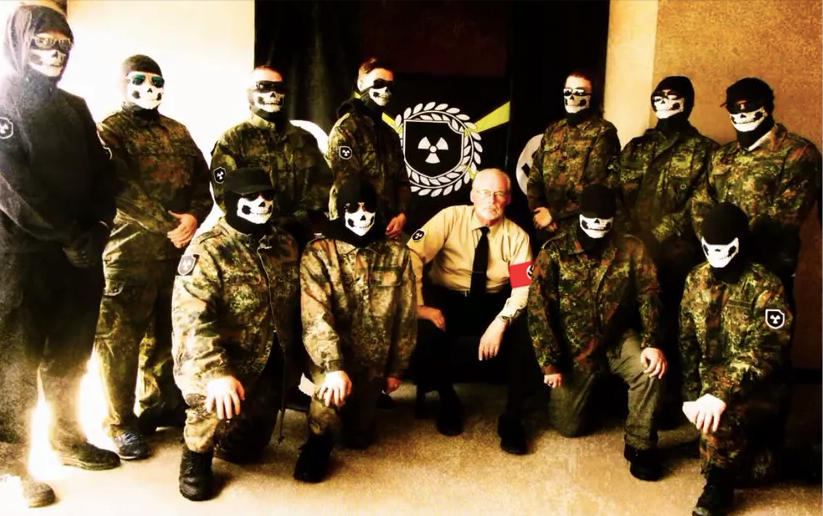
STRATEGIC ASSESSMENT. Canada’s Public Safety Minister announced that 13 new organizations have been added to the country’s terrorism list. The majority of the new groups on the list are affiliated with Salafi-jihadist terrorist organizations, including al-Qaeda and ISIS. But, notably, four of the groups belong to the category of far-right violent extremist, white supremacist groups, or neo-Nazi groups. The Proud Boys, the Atomwaffen Division (AWD), the Base (ironically, a literal translation of ‘Al-Qaeda’), and the Russian Imperial Movement (RIM) join two other far-right violent extremist organizations on Canada’s terrorism list – Blood & Honor and Combat 18, which were added in 2019. While three of the organizations were founded in the United States, they all have links to organizations globally, and play an integral part in the transnational violent far-right extremist milieu. There are growing concerns that post-COVID, once travel restrictions ease, there will be more cooperation between members of these organizations, traveling to network and strategize in Europe and North America and reinvigorate fundraising through events and personal interactions.
The Proud Boys claim to operate international chapters in more than forty countries. Demonstrating the international momentum garnered recently, a Telegram channel that describes itself as “The United Kingdom’s only official Proud Boys organisation” celebrated the January 6 insurrection on the U.S. Capitol. AWD, a white supremacy extremist group, has affiliated or inspired organizations in over a dozen countries, many of which have threatened or planned to carry out acts of violence, including its German and UK affiliates. In 2020, AWD’s UK affiliate was designated as a terrorist organization, and three of its members have been charged with were convicted on terrorism-related offenses. The Base, which has overlapping membership with AWD, has also established cells in countries and regions across the globe, including in Canada, Scandinavia, and South Africa. In January of last year, the FBI arrested several members of the Base who were reportedly planning violent attacks; one was a Canadian national. These FBI arrests significantly impaired the group on an operational level. The Base’s leader, an American named Rinaldo Nazzaro, is currently believed to be residing in St. Petersburg, Russia. He has reportedly expressed his desire to utilize the conflict in eastern Ukraine to train members and to fund local paramilitary training in the United States.
St. Petersburg is also home to the only non-U.S.-based group to be added to Canada’s terrorism list: RIM. The ultra-nationalist, paramilitary organization was designated by the U.S. Department of State as a Specially Designated Global Terrorist (SDGT) entity on April 6, 2020. RIM has maintained financial and ideological links to white supremacist organizations in the United States and Europe, including Matthew Heimbach’s Traditionalist Workers Party (TWP) and the Scandinavian-based Nordic Resistance Movement (NRM). In fact, two Swedish nationals who participated in a paramilitary training course hosted by RIM later returned to their home country and committed acts of violence.
Similar to Salafi-jihadist organizations, like ISIS and al-Qaeda, these groups have built internationally recognizable brands, which are capable of radicalizing individuals across the globe and inspiring acts of racially and ethnically motivated violence. The United States should consider building upon the recent designations from allies, including Canada and the UK, to levy sanctions against far-right extremist groups that meet the legal criteria for designations as a Foreign Terrorist Organization (FTOs). Such criteria include that a group has a foreign presence and has carried out terrorist activity that represents a threat to U.S. national security interests, which could qualify AWD, the Base, and the Proud Boys to be subject to such sanctions. Designating these groups’ international affiliates as FTOs would unlock a plethora of counterterrorism tools for U.S. law enforcement and intelligence, including asset freezing, travel bans, intelligence gathering and sharing with allies, investigative tools, social media content take-downs, and criminal charges. Furthermore, given the scale of far-right groups founded in the U.S., as well as the Department of Homeland Security’s public warning of the persistent domestic violent extremist threat, the Biden administration should explore options for a domestic terrorism statute by which to hold individuals accountable. International sanctions or designations, such as those that exist for ISIS, Al-Qaeda and their affiliates, through the UN, may not be feasible at this stage, but should such groups prove threat to international peace and security, we may also see growing calls for some kind of international sanctions regime (TSC).





